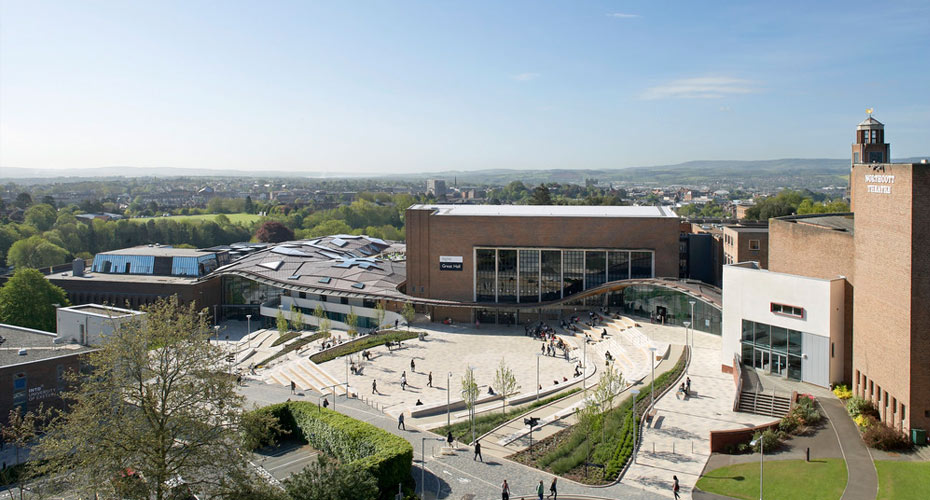University of Exeter secures £1.6m to support decarbonisation of the fashion and textile industry

The University of Exeter has placed =155th globally in the QS World University Rankings 2026
The University of Exeter has today been awarded £1.6m in funding for a new project led by Professor Tamara Galloway, which aims to support the decarbonisation of the fashion and textile industry.
A £6 million UK investment announced today (14th August) by UK Research and Innovation (UKRI) will help the fashion and textile industry integrate more sustainable and responsible practices.
The fashion and textile industry is estimated to be worth £21 billion to the UK economy, and provides more than half a million jobs.
But globally, the sector causes 8 per cent of global greenhouse gas emissions and 20 per cent of wastewater. Fashion uses more energy than both aviation and shipping combined. The complexity and reach of the industry means the true impact on the environment is not fully understood.
Professor Galloway will lead a research project called the ‘Future Fibres Network+ (FFN+) which will embed environmental sciences at the heart of the fashion and textile sectors. Prof Fiona Charnley, Dr Ruth Cherrington and Dr Ceri Lewis, also from The University of Exeter, will be supporting the project.
In partnership with University of Exeter, researchers from the University of the Arts London, University of Leeds, University of Huddersfield and University of Plymouth will build the critical mass of transdisciplinary expertise, and methodologies needed to establish systematic, circular and sustainable principles as the norm.
A key objective of the project is to counter the current siloed disciplinary approach that exacerbates the complexity of the environmental challenge. The FFN+ consortium is uniquely placed to address this issue, operating across established networks of expertise spanning environment, design, STEM and humanities capabilities across academic, industrial, public and private organisations, communities and networks.
Talking about the network, Professor Tamara Galloway said: “Our vision is to embed environmental sciences at the heart of the fashion and textiles sector. Building the Future Fibres Network is a first step towards transforming the fashion industry towards a new, low carbon future. We’re excited to be bringing together all sorts of expertise in business, design, manufacturing and the environment to achieve this.”
“It’s no longer good enough to design textiles and garments without thinking about what happens to them at the end of their life; we need to design in sustainability from the start. This could include manufacturing smarter fabrics or garments that don’t cause harm to the environment during their manufacture, use and disposal, but could also include developing more circular, less wasteful supply chains or changing people’s perceptions and attitudes to the clothes they wear.”
Professor Richard Thompson OBE FRS, Head of the University of Plymouth’s International Marine Litter Research Unit, said: “The clothing and apparel market is a key part of the UK and the global economy. However, despite some notable exceptions and improved general awareness of the need for the industry to become more sustainable, it remains one of the greatest environmental polluters with impacts right along the supply chain.
“Through our work at the University of Plymouth, we have provided clear evidence of solutions stemming from a better-by-design approach. The Future Fashion Network+ will enable us to expand that work, with the ultimate aim of creating a circular economy that reduces microfibre pollution to the environment and delivers positive changes for both the sector and society. A key and entirely novel initiative will be to implement transdisciplinary knowledge exchange for the next generation of fashion designers and environmental scientists in order to share understanding of the challenges and opportunities on the pathway to solutions.”
Professor Peter Liss, Interim Executive Chair of the Natural Environment Research Council, part of UKRI, said:“The fashion industry makes a significant contribution to the UK. But it also impacts the environment, including using water resources, affecting sea life, and causing greenhouse gases. We need to better understand the true impact.”
“This investment will bring together industry experts and researchers in environmental science and fashion to embed sustainability in the fashion and textile industry.”
A total funding of £6 million has been awarded to three teams of researchers by Natural Environment Research Council, the Arts and Humanities Research Council and Innovate UK. This investment, called the NetworkPlus, is a key part of UKRI’s £15 million Circular Fashion Programme.



